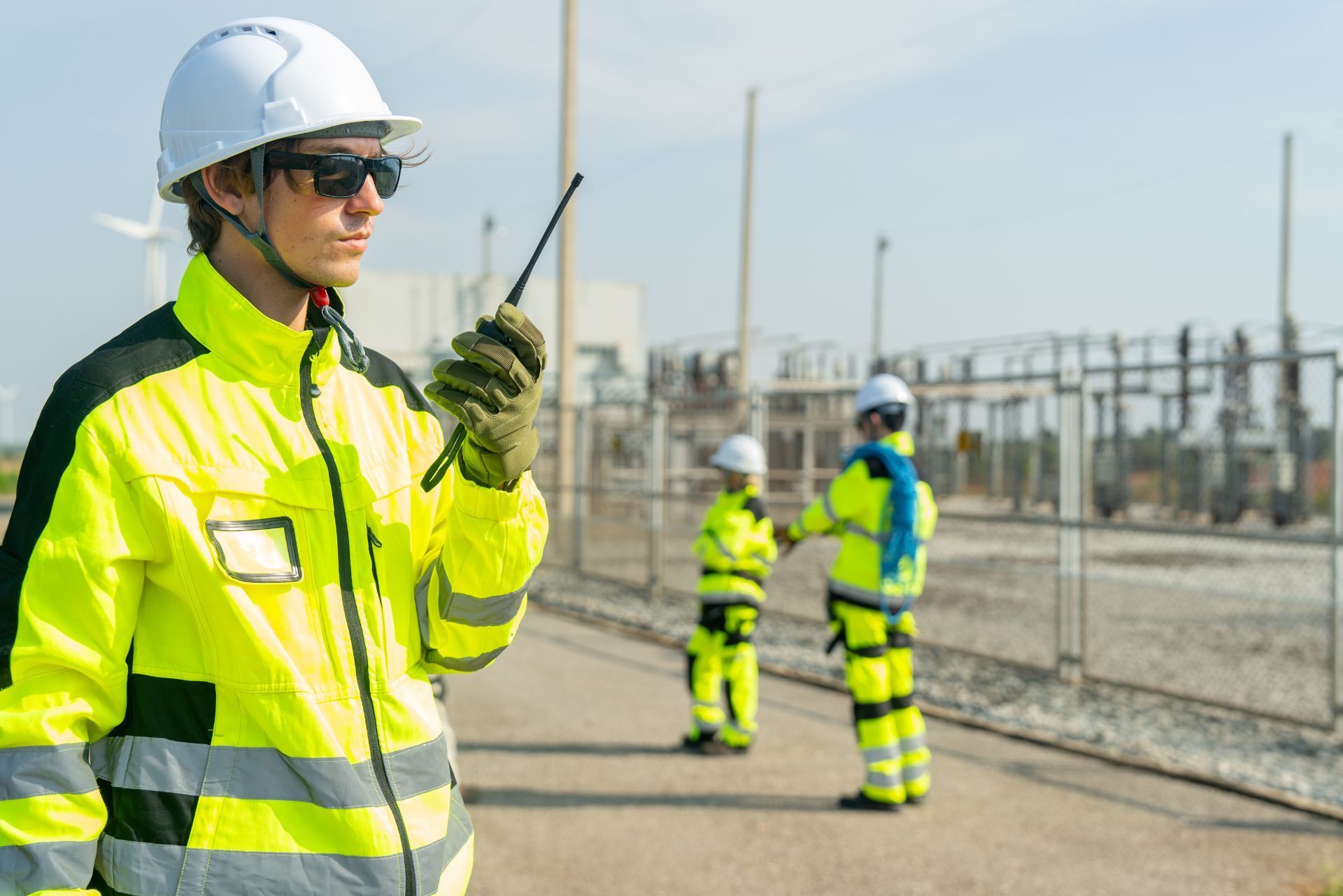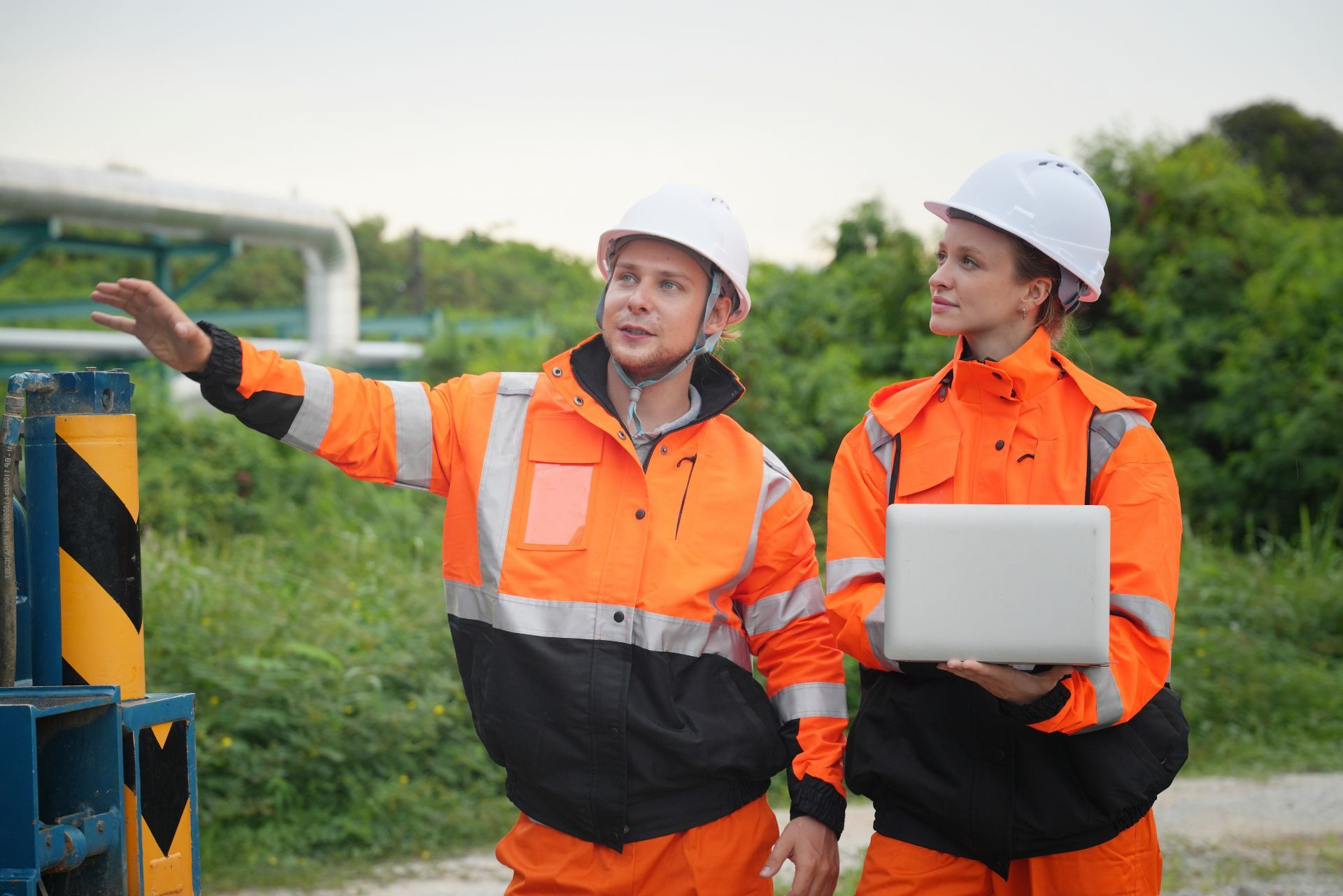Top 3 Recommended Policies

The HS2 project, one of the UK's most ambitious infrastructure undertakings, has far-reaching implications not only for transportation but also for the businesses involved in its construction and supply chain. With the scale and complexity of HS2, ensuring safety and robust monitoring services is critical—not just for the project’s success but also for the insurance landscape surrounding businesses engaged in this sector. This article explores the essential aspects of safety protocols, contractor monitoring, and the specific considerations for business insurance related to HS2 monitoring services.
Understanding HS2’s Commitment to Safety and Monitoring
Safety is at the core of HS2’s operational philosophy. The project’s Health, Safety and Wellbeing Review 2023 outlines comprehensive standards designed to protect workers, contractors, and the public throughout the construction process. This commitment reflects a broader industry trend where safety is not merely a regulatory requirement but a foundational business principle. HS2 has implemented various training programs aimed at instilling a culture of safety among its workforce, ensuring that everyone involved is not only aware of the risks but also equipped with the knowledge to manage them effectively. This proactive approach is essential in fostering an environment where safety is prioritized at every level of operation.
HS2 Ltd has increased its surveillance and interaction with contractors to ensure their financial and operational health remains sound. Mark Thurston, HS2 Chief Executive, emphasized this approach, stating, “We’ve increased our own surveillance and interaction with contractors to make sure of their health – it’s important to us.” This heightened oversight is crucial in mitigating risks that could impact project delivery and safety standards. In addition to regular audits and assessments, HS2 has also instituted a feedback loop where contractors can voice concerns or suggest improvements, thereby creating a collaborative atmosphere that enhances overall safety performance.
Such rigorous monitoring practices have a direct impact on how insurance providers assess risk. Businesses involved in HS2 must demonstrate adherence to these safety protocols and financial health checks to secure favorable insurance terms. The enhanced surveillance also helps identify potential issues early, reducing the likelihood of costly claims and project delays. Furthermore, HS2’s commitment to transparency in its safety practices not only builds trust with stakeholders but also sets a benchmark for other infrastructure projects, encouraging a widespread adoption of similar safety measures across the industry.
For more detailed insights, HS2’s Health, Safety and Wellbeing Review 2023 provides an in-depth look at their safety framework. The document outlines key performance indicators that HS2 uses to measure safety outcomes, including incident rates and compliance with safety training programs. This data-driven approach not only highlights areas for improvement but also showcases HS2's dedication to continuous enhancement of its safety protocols, ensuring that they remain at the forefront of industry standards.

The Economic and Employment Impact of HS2 on Businesses
HS2 is not only a construction project but a significant economic driver. It is projected to generate £10 billion in economic uplift in the West Midlands alone over the next decade. This surge in economic activity translates into increased demand for monitoring services and related business insurance products tailored to this sector.
Moreover, the project is expected to create nearly 25,000 construction jobs alongside thousands of supply chain roles. This scale of employment growth means more businesses will engage with HS2, increasing the need for robust insurance coverage that accounts for the heightened risks associated with large-scale infrastructure projects.
The construction value of major projects within HS2’s three impact zones has surged by 240% since 2017, rising from £4.5 billion to £15.4 billion. Such growth underscores the expanding opportunities—and risks—for businesses providing monitoring services, making comprehensive insurance coverage a vital consideration.
These figures are supported by research from HS2 Ltd’s economic impact study and employment data from the UK Government.
In addition to direct job creation, HS2 is expected to stimulate ancillary industries, including logistics, engineering, and technology sectors. As the project progresses, businesses in these fields will find new avenues for growth, leading to innovation and collaboration. For instance, technology firms may develop advanced monitoring systems to ensure safety and efficiency on construction sites, while logistics companies could enhance their operations to accommodate the increased demand for materials and supplies.
The ripple effect of HS2’s economic impact extends beyond immediate job creation. Local businesses, from cafes to hotels, are likely to benefit from the influx of workers and visitors associated with the project. This can lead to a revitalization of local economies, as increased foot traffic boosts sales and encourages new business ventures. Furthermore, the skills developed by workers in the construction and supply chain sectors can enhance the region's workforce, making it more attractive for future investments and projects.
Why Monitoring Services Are Critical for HS2 Contractors
Monitoring services play a pivotal role in maintaining the integrity and safety of HS2’s supply chain. The HS2 Supplier and Market Risk Monitoring report highlights the importance of a holistic approach to oversight, emphasizing collaboration between HS2, contractors, and suppliers to manage risks effectively.
By continuously assessing the financial health and operational capabilities of contractors, HS2 mitigates the risk of project disruptions. This proactive approach is especially vital given the complexity and scale of the HS2 project, where delays or failures can have cascading effects on timelines and budgets.
For businesses offering monitoring services, this environment demands specialized insurance products that cover a range of risks—from financial insolvency of contractors to health and safety incidents on-site. Insurance providers must evaluate how these monitoring services reduce overall risk exposure, potentially leading to more competitive premiums for well-managed businesses.
Moreover, the integration of advanced technologies such as real-time data analytics and machine learning into monitoring services enhances the ability to predict and respond to potential issues before they escalate. These technologies enable contractors to visualize project metrics and trends, allowing for informed decision-making that aligns with HS2’s stringent safety and operational standards. As a result, contractors can not only ensure compliance with regulations but also foster a culture of continuous improvement within their teams.
Additionally, the collaborative nature of risk management extends beyond immediate contractors and suppliers. It encompasses a broader network of stakeholders, including local communities and regulatory bodies, which is essential for building trust and transparency. Engaging these groups through regular updates and consultations can lead to more resilient project outcomes and a stronger reputation for all parties involved. This multifaceted approach not only safeguards the project’s integrity but also contributes to sustainable development practices that benefit the wider society.
More about this collaborative risk management approach can be found in the HS2 Supplier and Market Risk Monitoring report.
Ministerial Oversight and Its Implications for Business Insurance
In response to escalating costs and delivery challenges, the UK government has reinstated ministerial oversight of HS2. This development signals increased scrutiny and accountability at the highest levels, aiming to ensure that the project remains on track and within budget.
For businesses involved in HS2 monitoring services, this heightened oversight translates into stricter compliance requirements and more rigorous reporting standards. Insurance policies will likely reflect these changes, with underwriters seeking assurance that businesses can meet the enhanced governance and risk management expectations.
Ministerial oversight also means that any risks related to project delays or cost overruns may be more closely monitored, potentially affecting claims and liability considerations for insurers and insured parties alike.
The Guardian provides an update on this oversight in their recent article on ministerial involvement in HS2.
Furthermore, the implications of ministerial oversight extend beyond immediate compliance issues. Businesses may need to invest in advanced risk management frameworks and technologies to align with the government's expectations. This could involve adopting innovative project management tools that enhance transparency and facilitate real-time reporting, thereby reducing the likelihood of disputes and claims related to project execution.
Moreover, the increased scrutiny may foster a more collaborative environment among stakeholders, including contractors, subcontractors, and insurers. By encouraging open communication and shared accountability, the oversight could lead to improved project outcomes and a more resilient supply chain. As businesses navigate these changes, they will need to remain agile and proactive in adapting their insurance strategies to mitigate emerging risks associated with this high-profile infrastructure initiative.

Key Insurance Considerations for HS2 Monitoring Service Providers
Businesses providing monitoring services within the HS2 project face unique insurance challenges. Given the scale of HS2 and the complexity of its supply chain, insurance policies must be tailored to cover specific risks such as professional liability, financial loss due to contractor insolvency, and health and safety compliance failures.
One critical consideration is the demonstration of due diligence in contractor monitoring. Insurers will assess how effectively a business manages its oversight responsibilities, including the use of advanced surveillance techniques and financial health checks. This is increasingly important as HS2 has intensified its scrutiny of contractors’ financial stability since the pandemic began.
Additionally, businesses must ensure their insurance policies cover emerging risks related to supply chain disruptions and regulatory changes. The dynamic nature of HS2’s monitoring requirements means that insurance coverage should be regularly reviewed and updated to reflect current project realities.
Moreover, the integration of technology into monitoring practices introduces another layer of complexity. The use of drones, IoT devices, and data analytics not only enhances the accuracy of monitoring but also raises questions about data security and liability in the event of a breach. Insurers are likely to scrutinize how businesses manage these technological advancements, assessing their protocols for data protection and incident response. As the industry evolves, staying ahead of technological trends will be crucial for maintaining robust insurance coverage.
Insights into these insurance dynamics can be linked to HS2’s increased surveillance efforts discussed in
Construction News. Furthermore, the ongoing dialogue around sustainability and environmental impact within the HS2 project also necessitates a reevaluation of insurance policies. As stakeholders increasingly prioritize eco-friendly practices, monitoring service providers may need to consider coverage that addresses potential liabilities arising from environmental compliance failures, ensuring they are not only protecting their business interests but also aligning with broader project goals.
Conclusion: Navigating Safety and Insurance in the HS2 Era
The HS2 project represents both an unprecedented opportunity and a complex challenge for businesses involved in monitoring services. With stringent safety standards, enhanced contractor surveillance, and increased government oversight, the landscape demands a proactive approach to risk management and insurance coverage.
Understanding the economic impact, employment growth, and the evolving regulatory environment is essential for businesses to secure appropriate insurance and operate successfully within the HS2 framework. By aligning safety practices with comprehensive monitoring and insurance strategies, businesses can not only protect themselves but also contribute to the overall success of this landmark infrastructure project.
As HS2 continues to evolve, staying informed through official reports and industry updates will be key to adapting insurance policies and maintaining compliance. The project’s scale and ambition make it a unique case study in how safety and monitoring intersect with business insurance in modern infrastructure development.
Contact Us
Phone
Location
9595 Six Pines Dr, Suite 8210, The Woodlands, TX 77380

